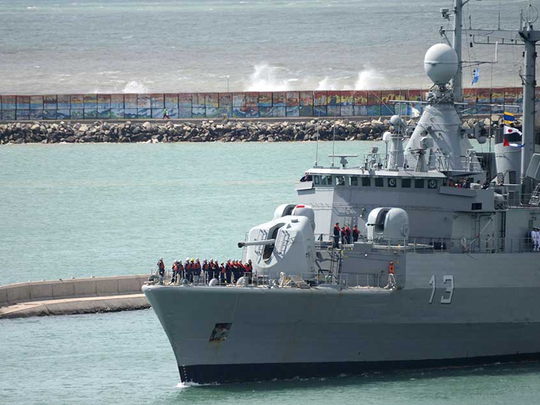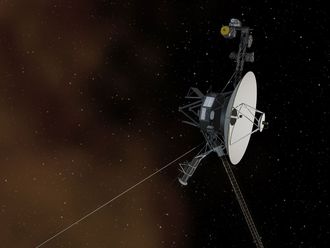
Mar del Plata, Argentina: Sounds detected by probes deep in the South Atlantic on Monday did not come from an Argentine submarine that has been lost for five days, the country’s navy said Monday, dashing newfound hope among relatives of the 44 sailors aboard.
Navy spokesman Enrique Balbi told reporters that the “noise” was analysed and experts determined it was likely “biological.” He said the sounds did not come from tools being banged against the hull of a submarine as was previously reported by some media.
“We all had hope, but unfortunately this comes from believing sources that are not trustworthy,” Balbi said. “Some sources were saying that this was banging on the hull in Morse code signals.”
The noise was heard by two Argentine navy ships about 360 kilometres from the Argentine coast and at a depth of about 200 metres. A US Navy P-8 Poseidon aircraft was sent to help in the effort to isolate the source of the sounds.
The ARA San Juan went missing Wednesday as it sailed from the extreme southern port of Ushuaia to the coastal city of Mar del Plata. More than a dozen international vessels and aircraft have joined the search, which has been hindered by stormy weather that has caused waves up to 20 feet (6 metres).
In the first confirmation of a malfunction, an Argentine navy official said earlier Monday that the submarine reported a battery failure Wednesday and was returning to base when it went missing.
The wire fence at the Mar del Plata naval base was dotted Monday with emotional messages holding out hope for word.
Outside the base 400 kilometres south of Buenos Aires, the mood was tense but still somewhat optimistic.
Ships and aircraft from seven countries are searching 24 hours a day through storms that have continued to rage at sea. And still, they have brought none of the news relatives want.
“Courageous Men and Women of the Navy: Our Hearts have Stopped Beating Until You’re Home,” read one banner, carefully handwritten.
Most of the crew live in this seaside South Atlantic city.
Many hail from distant provinces, like Eliana Krawczyk, from Misiones in the north. She is South America’s first female submariner.
About 100 relatives of the missing were at the base getting crisis medical and counselling support, around the clock. They tried to stay calm and keep hope alive.
“Be strong Daddy. Your family is waiting for you,” read one sign, alongside religious posters and some handwritten prayers.
“People’s moods are pretty good. Of course some are more upbeat than others. But there is a general feeling that at any time, something positive could happen,” said Jorge Villarreal, the father of crew member Fernando.
Media are not allowed on the base.
And only some relatives come. Some stop, take pictures, leave messages and head off on the avenue outside the base.
President Mauricio Macri met with them to try to rally spirits.
“So far, we have not had a lot of crisis reactions, such as weeping; people are sort of stable amid the uncertainty,” said therapist Enrique Stein.
But “anxiety is starting to grow,” he stressed.
Search efforts have been hampered by inclement weather, including a powerful storm that has whipped up waves reaching seven metres in height.
A multinational air and sea search team is focusing on an ocean patch about 300 kilometres in diameter, radiating from the last point of contact.
The submarine had been returning from a routine mission to Ushuaia, near the southernmost tip of South America, to Mar del Plata.
It is one of three submarines in the Argentine fleet.
Sixty-five metres long and seven metres wide, it was built by Germany’s Thyssen Nordseewerke and launched more than three decades ago.
It underwent a refit between 2007 and 2014 to extend its use by about 30 years.












